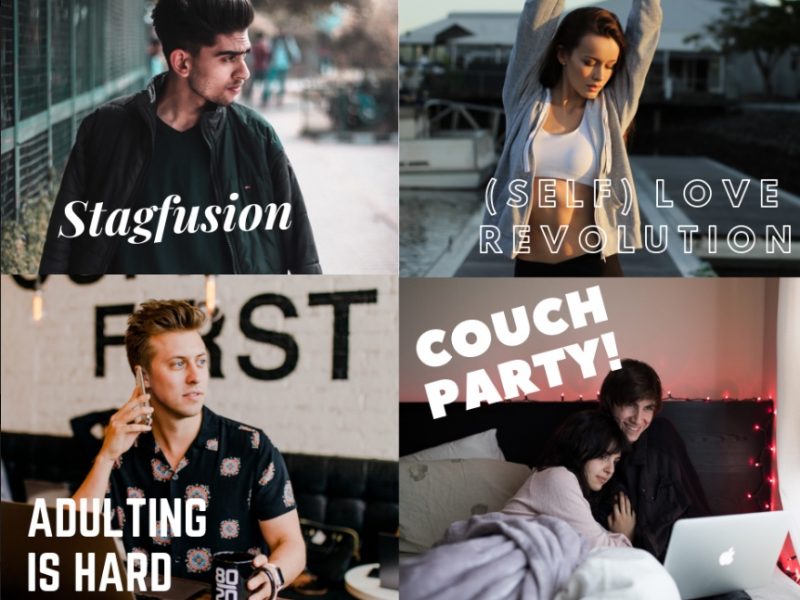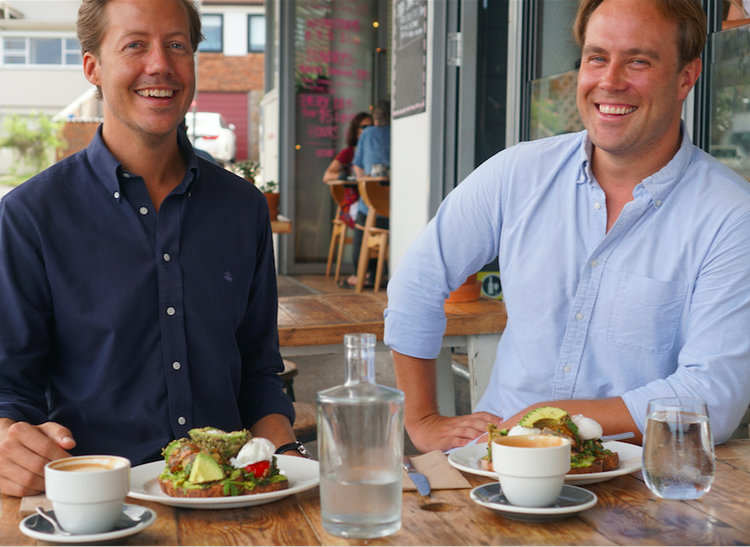Four millennial trends brands need to know about
After surveying more than 1,200 millennials, Tom McGillick and Mark MacSmith claim they’ve uncovered four trends that give brands an insight into Australians aged 18-36.
What’s up with Australian millennials? You can’t live with them, but the economy can’t live without them. After completing Australia’s most comprehensive study into Australian millennials we discovered four new trends that are influencing Millennial attitudes and behaviour in Australia.
The four trends in this article refer to findings from the Australian Millennial Report 2019 and Australian Generation Z Report 2019, a nationally representative survey of over 1,200 Australians aged 18-36, conducted in the first quarter of 2019.

1. Stagfusion
Older millennials aren’t significantly better off than younger millennials and they’re not sure what to do about it.
It’s no longer true that if you finish high school, get a university degree, and keep showing up to work each day, you will gain financial success, prosperity and a self-funded retirement.Consider the following findings from the 2019 Australian Millennial Report:
- perceptions of job insecurity are slightly higher for over 30s than for younger millennials;
- over 30s are actually more likely to say they have no disposable income than younger millennials;
- over 30s rate the attainability of their financial goals no higher than millennials aged 24 or younger.
Difficulty in getting ahead is one of the most widely reported characteristics of the Australian millennial experience. The surprising thing is how little understanding this group demonstrates when it comes to improving their prosperity. The strongest predictor of financial prosperity and personal optimism was a postgraduate degree, yet enrolment rates in masters courses are dwindling and, when asked, millennials value on-the-job training over any post graduate education.
Something millennials have benefitted from since 2008 is the reduction in barriers to starting a business, but the number of 19-36 year-olds who list starting a business as a five year financial goal has almost halved in the past 12 months.
For Australian millennials, it’s a less straightforward path to success than in the past, and the lack of clarity around what constitutes the ‘right’ approach to pursuing prosperity is making that even more difficult.
2. Adulting is a trap
Declining trust is everywhere for Australians of any age, but where millennial Australians do place their trust is increasingly difficult to predict. They have very little faith in the institutions that can help them move into adult life, they don’t trust what they hear and read, and they don’t trust the government to do anything for them, particularly the major parties. How these young Australians interact with organisations they don’t trust, however, is even harder to predict.
For the past two years, the two top concerns for Australian millennials when it comes to the media have been the:
- proliferation of fake news; and
- growth of social media as a news source.
Despite a year spent in the headlines for mishandling user data, and facilitating the tampering of political outcomes, Facebook is on track to overtake television in 2019 as the number one source of news for young Australians.In the wake of the Banking and Finance Royal Commission findings, Australian millennials unsurprisingly rated their trust in banking and finance brands poorly. Over 10% said they would change which bank they used in response to the Royal Commission. In fact, the strongest predictor of intention to change banks was smartphone use. The more time spent on their phone each day, the greater the likelihood they would intend to switch banks.For any organisation looking to engage young Australians, gaining trust will continue to prove difficult, but trust no longer appears to be so closely associated with loyalty. Millennials are just as likely to love you and leave you, as they are to hate you and stick around.
3. (Self) love revolution
The millennial generation is not especially charitable, they don’t commonly volunteer in their communities, and they’re less likely to be religious than previous generations. Their preferred outlet for virtuousness is a disciplined approach to their health. Looking after their mind and body is as close to spirituality as many Australian millennials ever get.
For example:
large numbers of millennials and teens are rejecting or abandoning drinking alcohol, smoking, and taking illegal drugs. Among young people from Australia, the UK and US, Australians are the most likely to avoid all three;
- the average millennial is actively pursuing more than one specific health goal at any given time;
- most have had a conversation with a friend or family member about mental health in the last month. For most teens, it’s within the last seven days; and
- a significant and increasing number of young Australians say looking after their health is the most important contributing factor to their happiness, achievement of success, and sense of personal freedom. It ranks higher than being close to friends and family, increasing personal wealth, and being able to travel.
The millennial generation has shown that an added health benefit can be a driver of preference in almost any category or product. The drive to optimise health and fitness is strong, but looking after your mind and body has taken on a greater significance for millennials. Anything that has a negative influence on the mind and body is a serious threat.
4. The couch party
Millennial Australians aren’t spending time together as much, or in the ways we’re used to. Aside from the cost of going out, there are a number of reasons why young Australians are choosing to stay in. What do they do instead of going out? Order in and watch Netflix, YouTube, and live vicariously through Instagram influencers.
The survey showed that:
- most millennials from all over Australia are increasingly ambivalent about their nightlife, with most feeling the nightlife in their area has remained the same over the last five years. Even Sydney and NSW millennials mostly feel their nightlife has remained the same over the last five years, despite being disproportionately affected by NSW lockout and liquor laws;
- younger, single millennials are no more likely to have gone to a restaurant or bar, to see live music, or to the movies in the last month, than older, millennial parents;it doesn’t help that dating has become trickier. The number of Tinder loyalists is falling year on year, and most millennials believe our attitudes towards sex are becoming more conservative; and
- internet usage has become more passive in the past 12 months. Millennials are more devoted to apps that are used for entertainment, like YouTube and Netflix, while apps for social interaction, like Facebook and Whatsapp, have lost some importance.
A generation of young people increasingly looking inwards towards a closer circle of friends will no doubt have a major influence on what products and brands are seen as aspirational.

Tom McGillick and Mark MacSmith are the co-authors of The Australian Millennial Report 2019.


It makes zero sense to lump 18-36 years olds together as one segment.
This genuinely sounds like something from College Humour’s start up guys sketch
I’m surprised you managed to get a “representative” sample of 1,200 “millennials” to “trust” you enough to sit still for long enough to complete the 50 questions in your survey given that they are so ambivalent and passive.
“…the lack of clarity around what constitutes the ‘right’ approach to pursuing prosperity is making that [finding a path to success] even more difficult”. Because all of us who have lived through these ages before had really clear instructions on how to achieve success in life. Oh. Woe is me. Please.
“So when did you stop behaving like a 19 year old?”
“When I was 36.”
I see the problem.
If the above is correct at all, and I have doubts, then a substantial investment is needed in mental health services.
1) Insecure
2) Paranoid
3) Narcissistic
4) Isolated
Oh dear!
“Their preferred outlet for virtuousness is a disciplined approach to their health. Looking after their mind and body is as close to spirituality as many Australian millennials ever get.”
Woah!
Can’t identify with any of these.
Probably needs to elaborate on demographics and background